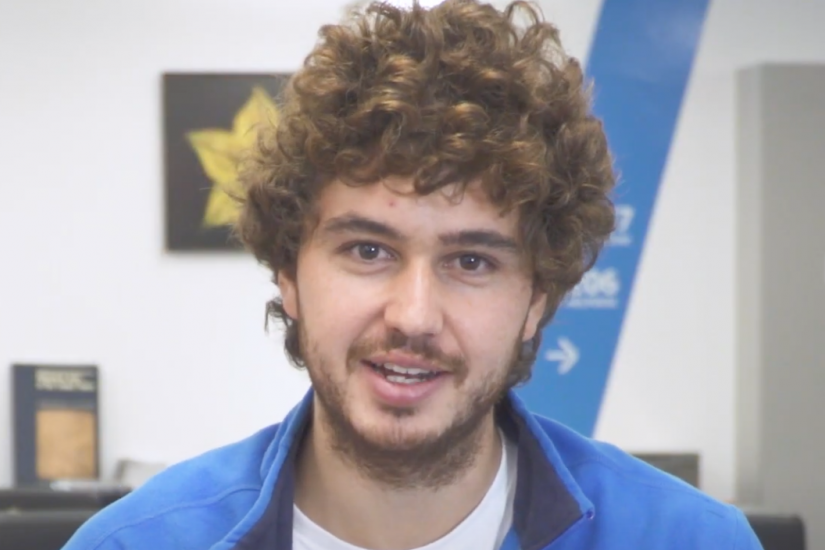
Please register for this event under the link provided on the right. We will send the link to registered attendees 1 hour before the event starts. Please note that registration closes at 1:00pm on March 22.
Please note that this talk is part of the departmental colloquium series, featuring 2 talks, each 30 minutes long, between 2:00pm-3:00pm. The two talks may be swapped, so it is possible that this talk will start later, at 2:30pm.
ABSTRACT / The socioeconomic status is a crucial driver in the emergence of the structure of social networks both due to its role in the formation of homophilic relations and because of its consequences in terms of emergent macroscopic phenomena. The relation between the socioeconomic status and the social structure has been studied with traditional tools for many decades. However, the role of the socioeconomic status in social network evolution in large-scale systems represents an open challenge for modern network science, which can be addressed due to relevant data available recently. In particular, the impact of exogenous shocks, like the emergency crisis related to the COVID-19 outbreak and the subsequent implementation of governmental response policies, on the structure and socioeconomic profile of a large-scale social network still lacks profound comprehension. In our study, we leverage a large-scale mobile phone communication dataset from Sierra Leone, referring to the COVID-19 crisis period, and couple it with a poverty map from census. We infer first the home location of mobile phone users by exploiting their activity in space and time, and assign them the socioeconomic indicator from the census patch where their estimated home location falls. With this procedure we construct a large-scale socioeconomic network in which each person is associated with a socioeconomic indicator derived from the poverty index of their home location.
With this combined dataset, we first analyze the impact of restriction policies on the social structure investigating how the network was reorganized during the lockdown. Secondly, we group users in nine socioeconomic classes (based on their inferred socioeconomic status) and study the effects of the lockdown on the behavior of users of different classes, observing varying capacities for adaptation to the emergency situation. Lastly, we analyze segregation in social interactions both in the capital city of Freetown and in the rest of the country, measuring the levels of interaction between the different socioeconomic classes and assessing their significance by comparing them to the levels obtained from random reference models. We observe stratification patterns which are consistent over the time of observation and which were impacted by the emergency.
BIO / I have a physics background, having studied in different institutions around Italy and Europe: University of Pisa (Pisa), SISSA (Trieste), ICTP (Trieste), Politecnico di Torino (Torino) and a consortium of French university in Paris (Sorbonne, Paris VII, Saclay). I graduated in Physics of Complex Systems in 2018, after a visiting period at the Department of Network and Data Science at CEU, where I had the chance to write my master thesis.
After graduating, I spent a year as a Junior Research Scientist at the ISI Foundation in Turin, my research contribution being part of the Lagrange Project on Data Science and Social Impact.
After five years of pure theoretical physics, I got fascinated by the study of social phenomena from a quantitative perspective: broadly speaking, I am interested in anything related to the understanding of human behavior through the use of network science and data analytics techniques.
In my free time, I like playing (and watching) football, snowboarding, sailing, and playing music.